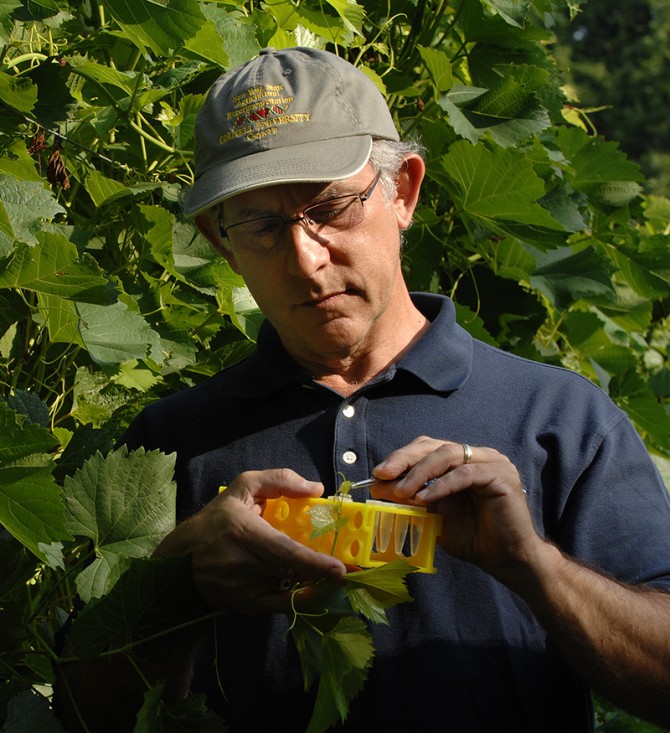
Cornell Chronicle [2017-08-31]
Breeding the next great grape is getting a boost thanks to new funding for a Cornell-led project that uses genomic technology to create varieties that are more flavorful and sustainable.
The project, VitisGen2, is a collaboration of 25 scientists from 11 institutions who are working in multidisciplinary teams to accelerate development of the next generation of grapes. Launched in 2011, the project was recently renewed with a $6.5 million grant from the U.S. Department of Agriculture’s National Institute of Food and Agriculture, Specialty Crop Research Initiative.
The work has the potential to save millions of dollars annually for the U.S. grape industry – in excess of $100 million in California alone, according to Bruce Reisch, professor of grapevine breeding and genetics in the College of Agriculture and Life Sciences (CALS), who co-leads the project with Lance Cadle-Davidson, plant pathologist with the USDA-ARS Grape Genetics Research Unit, both located at Cornell’s New York State Agricultural Experiment Station in Geneva, New York.
VitisGen2’s multipronged model addresses the grape production continuum. An economics team examines the benefits of improving grape varieties. Geneticists identify molecular markers for important traits in grapes, from resistance to diseases like powdery mildew to boosting low-temperature tolerance and fruit quality. Grape-breeding scientists develop new grape varieties that incorporate these traits, and teams of outreach specialists help growers and consumers understand the advantages of newly introduced grape varieties.
The result is a new generation of high-quality grapes that can be grown at lower cost and adapt easily to a range of geographic regions and climates, all with less environmental impact.
“We all stand to benefit in areas ranging from the environment to economic sustainability to improving the profit and quality possibilities for the industry,” Reisch said.


